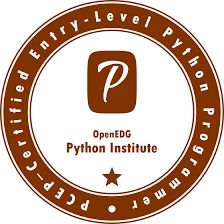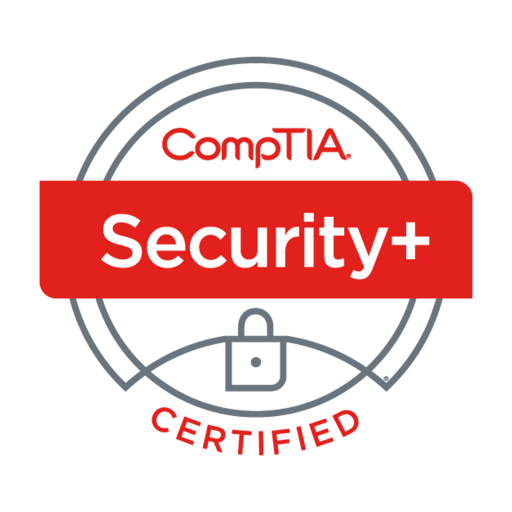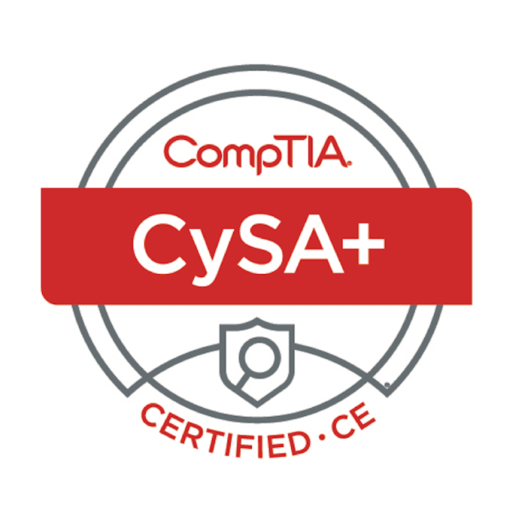Overview
The LT3 Academy PATH program offers a comprehensive preapprenticeship uniquely designed for the high school-aged demographic, accommodating traditional students, homeschoolers, and alternative education attendees. Our curriculum is crafted to provide employable skills in software development with a strong emphasis on practical experience and early acquisition of industry certifications within the course framework. As students progress, they not only learn but also apply their knowledge, earning valuable credentials recognized across the cyber industry. This proactive approach ensures they are fully prepared for the next step — a guaranteed paid internship at the end of the program, giving them a competitive edge whether entering the workforce or enhancing their college applications.
A Preapprenticeship For High School Students
- Tailored for high school-aged students, including homeschoolers and other non-traditional learners.
- Flexibility with online learning that fits into a teen's busy schedule.
- Integrated acquisition of industry certifications during the program.
- A guaranteed paid internship for all program completers, providing crucial work experience.
- Expert-led instruction from industry professionals, ensuring quality education.
- Personalized career guidance to support each student's individual pathway.
- Zero-interest payment plans, making education accessible.
- A curriculum that prepares students for immediate tech roles or to enrich their college applications.
Learn More About the LT3 Difference
What You will Learn?
- Linux for Cyber Security - Master Linux, the foundation of many cyber security systems, for robust security management.
- Python Coding for Cyber Security - Leverage Python for creating effective security tools and automating cyber defense strategies.
- SQL for Cyber Security - Delve into SQL with an emphasis on securing databases and preventing data breaches.
- Windows Familiarization - Explore Windows OS, understanding its security features and managing its vulnerabilities.
- IT Fundamentals - Build foundational IT knowledge, essential for understanding complex digital infrastructures.
- Identifying Security Threats and Vulnerabilities - Learn to detect and understand diverse cyber threats and vulnerabilities.
- Implementing Secure Network Architecture - Develop skills in designing and implementing robust and secure network architectures.
- Risk Management and Compliance - Understand IT security policies, laws, and effective risk management strategies.
- Incident Response and Recovery - Gain expertise in responding to and recovering from security breaches and incidents.
- Cryptography and Public Key Infrastructure (PKI) - Explore the world of cryptography and PKI for secure communication and data protection.
- Threat and Vulnerability Management - Master the identification, analysis, and mitigation of IT system vulnerabilities.
- Security Operations and Monitoring - Specialize in monitoring networks and detecting cybersecurity events for enhanced security.
- Incident Response and Forensics - Learn the essentials of managing security incidents and conducting forensic analysis.
- Software and Systems Security - Understand the security aspects throughout the software and systems lifecycle.
- Compliance and Assessment - Dive into conducting audits and compliance checks in the IT environment.
- Planning and Scoping Penetration Tests - Learn strategic planning and scoping for effective penetration testing.
- Conducting Passive and Active Reconnaissance - Master information gathering techniques to identify potential cyber threats.
- Exploitation Techniques - Understand and apply various exploitation techniques for testing system vulnerabilities.
- Penetration Testing Tools - Become proficient in using diverse tools for effective penetration testing.
- Reporting and Communication - Develop skills in reporting findings and recommending strategies to enhance security.
-
Software Fundamentals
Learn the foundations of software development. This will provide the foundation to learning any programming language as you move forward in your career.
-
Intro to Software Development
Certification Item!
-
Data and Operator Fundamentals
Certification Item!
-
Conditions, Control & Flow Structures
Certification Item!
- (11) More Software Fundamental Items
-
Building Blocks
Go deeper by learning the building blocks of software development. These building blocks are what programming languages are built upon.
-
Functions
Certification Item!
-
Logic Control
Certification Item!
- Object Oriented Design
- (3) More Building Block Items
-
Functions
-
Digital Transformation Fundamentals
Learn the foundations of intelligent and hyper automation driven digital transformation.
- Intelligent Automation Disciplines
- Intelligent Automation
- (3) More Digital Transformation Fundamental Items
-
Computer Science (CS) Applied
Dive into applied computer science concepts using JavaScript in a Node environment (NodeJS).
- Algorithms
- Performance
- Data Structures
- (3) More CS Applied Items
-
Databases
Gain the experience needed to develop and design against SQL and NoSQL databases.
-
SQL Database Modeling with Microsoft SQL
Certification Item!
- Introduction to NoSQL with MongoDB
-
Data Manipulation with Microsoft SQL
Certification Item!
- (8) More Database Development Items
-
APIs & SDKs
Learn to write the core component of all modern projects.
- Data Format (JSON, XML)
- API Development in NodeJS
- API Documentation
- API Frameworks
- (5) More API & SDK Items
-
Deployment and Delivery
Learn to work as part of a distributed team to push and ship code!
- Continuous Deployment & Integration
- Git and Tools
- Container Fundamentals
- (3) More Deployment and Delivery Items
-
Backend Frameworks & Stacks
Learn to code withing popular Javascript frameworks!
- NodeJS
- Express
- Amazon Web Services (AWS)
- (1) More Deployment and Delivery Item
-
Front End Development
Learn some fundamental front end skills.
- HTML
- CSS
- Next JS
-
Scalable Design
Go to the next level by understanding the architecture of modern applications.
- Microservices
- N-Tier Design
- PubSub
- (3) More Scalable Design Items
-
SQL Database Modeling with Microsoft SQL
-
Intro to Software Development

Certified Entry-Level Python Programmer
PCEP
The PCEP - Certified Entry-Level Python Programmer certification is a specialized credential designed to certify that the holder possesses a fundamental understanding of Python programming. This certification is an ideal starting point for those new to programming and seeking to establish a career in this dynamic field. Individuals who achieve this certification demonstrate their ability to work with the basic concepts in Python, including data types, functions, conditions, loops, as well as handling exceptions and understanding Python syntax and semantics.
Candidates who successfully earn the PCEP certification show proficiency in writing clear and logically structured Python code, solving simple problems, and executing basic programming tasks. They also exhibit an understanding of the principles of Python programming, which forms a strong foundation for further professional growth in software development. The certification underscores the importance of Python as a versatile and powerful programming language in modern software development and serves as a stepping stone towards more advanced Python programming certifications. Holders of the PCEP certification are well-equipped to contribute effectively in entry-level Python programming roles and have established a solid base for further learning and specialization in Python and other programming languages.

ICT Database Essentials
Kofax
The ICT Database Essentials Certification is tailored for those starting their journey in the field of database management and design. This certification assesses an individual's foundational knowledge in database concepts, including data modeling, database design, and SQL querying. Those who achieve this certification have demonstrated an ability to create and manipulate databases, understand relational database management systems (RDBMS), and apply basic SQL commands for data retrieval and manipulation. The certification ensures that the recipients have a firm grasp of database normalization, transaction management, and basic data security principles. It serves as a stepping stone for more advanced database management roles and sets the groundwork for further specialization in database technologies.

IT Fundamentals
CompTIA
The CompTIA IT Fundamentals (ITF+) certification is an essential introductory credential designed to provide individuals with a comprehensive understanding of the fundamental aspects of IT. This certification is particularly valuable for those just beginning their journey into the world of information technology and cybersecurity. Individuals who attain this certification demonstrate their knowledge of key IT concepts and practices, including understanding computer systems, setting up and managing software, establishing basic network connectivity, identifying common cybersecurity threats, and practicing safe and effective computing.
Candidates who successfully complete the ITF+ certification exhibit a solid foundation in IT basics, crucial for tackling entry-level tasks in the IT field. The certification covers a broad range of topics, ensuring a well-rounded understanding of IT principles. These include the workings of computer hardware and peripherals, basic software installation and configuration, the fundamentals of networking and cybersecurity, and the basics of data storage and management.
The CompTIA ITF+ certification is a stepping stone for students and aspiring IT professionals, laying the groundwork for further specialization and advancement in the field of IT and cybersecurity. It emphasizes the importance of a strong foundational knowledge in IT, which is indispensable in the rapidly evolving tech landscape. Those who earn the ITF+ certification are well-prepared for entry-level IT roles and are equipped with the fundamental skills necessary for pursuing more advanced IT certifications and career paths.

Security+
CompTIA
The CompTIA Security+ certification is a globally recognized credential that serves as a benchmark for best practices in IT security, one of the fastest-growing fields in IT. This certification is designed for individuals seeking to demonstrate their knowledge and skills in a wide range of security-related disciplines. Those who achieve this certification possess a deep understanding of security concepts, tools, and procedures, as well as the ability to react to security incidents, making them invaluable assets in protecting organizations against threats.
Candidates who successfully earn the Security+ certification are proficient in identifying risks and vulnerabilities in systems and networks and implementing appropriate security measures. They demonstrate expertise in critical areas such as network security, compliance and operational security, threats and vulnerabilities, data and host security, access control and identity management, and cryptography.
The CompTIA Security+ certification is an essential qualification for IT professionals looking to advance their careers in security. It lays a solid foundation for roles such as security analyst, security specialist, network administrator, and any position requiring a strong security background. The certification is also aligned with the latest trends and techniques in risk management, risk mitigation, threat management, and intrusion detection, making it relevant in the ever-evolving landscape of IT security. Holders of the Security+ certification are well-equipped to implement and maintain robust security infrastructures and to contribute to the overall security posture of their organizations, a critical skill in today's interconnected world.

CySA+
CompTIA
The CompTIA Cybersecurity Analyst (CySA+) certification is a highly respected credential that signifies expertise in cybersecurity analysis. This certification is designed for IT professionals seeking to demonstrate their ability in applying behavioral analytics to networks and devices to prevent, detect, and combat cybersecurity threats. Individuals who achieve this certification have a comprehensive understanding of how to monitor and respond to security incidents, as well as how to effectively strengthen the overall security posture of their organization.
Candidates who successfully attain the CySA+ certification show proficiency in critical areas such as threat and vulnerability management, cybersecurity resilience, security operations and monitoring, incident response, and compliance and assessment. They are skilled in analyzing data and interpreting results to identify vulnerabilities, threats, and risks to an organization, recommending and implementing appropriate countermeasures and mitigation techniques.
The CySA+ certification is an invaluable asset for those looking to advance their career in the cybersecurity field, particularly in roles such as security analysts, vulnerability analysts, threat intelligence analysts, or security operations center (SOC) analysts. This certification aligns with the latest practices in risk management, risk mitigation, threat management, and incident response, making it highly relevant and practical in the constantly evolving cybersecurity landscape.
Holders of the CySA+ certification are recognized for their ability to proactively defend and continuously improve the security of an organization, using both traditional tools and the latest technologies. They are capable of working in fast-paced environments and adapting to the changing landscape of cybersecurity threats, making them crucial contributors to the protection and resilience of IT infrastructures.

Pen+
CompTIA
The CompTIA PenTest+ certification is an advanced credential geared towards IT professionals who wish to excel in the field of penetration testing and vulnerability assessment. This certification is specifically designed for those seeking to demonstrate their expertise in hands-on, practical abilities to conduct effective, comprehensive penetration testing. Individuals who achieve this certification are proficient in various aspects of offensive cybersecurity, including planning, scoping, and managing weaknesses, not just exploiting them.
Candidates who successfully attain the PenTest+ certification are skilled in identifying, exploiting, reporting, and managing vulnerabilities on a network. They show competency in various penetration testing techniques and methodologies, including understanding legal and compliance requirements, conducting information gathering and vulnerability identification, executing attacks and exploits, and preparing reports and conducting post-test analysis.
The CompTIA PenTest+ certification is ideal for cybersecurity professionals pursuing roles such as penetration testers, vulnerability testers, security analysts, vulnerability assessment analysts, network security operations, and application security vulnerability analysts. This certification ensures that the holder is equipped with the latest skills and knowledge needed to determine the resiliency of the network against attacks.
Holders of the PenTest+ certification are recognized for their ability to actively identify vulnerabilities and effectively demonstrate how to exploit them, providing essential insights into the robustness of the security posture of the systems being tested. They play a critical role in strengthening organizational security by providing comprehensive assessments and detailed reports that inform effective cybersecurity strategies. The CompTIA PenTest+ is a key credential for cybersecurity practitioners who focus on proactive, offensive security measures in various complex environments.
What Jobs Can I Get?
-

Security Analyst
A professional responsible for protecting IT infrastructure against cyber threats.
A Security Analyst assesses and mitigates risks to the IT infrastructure, implements security measures, monitors security systems for anomalies and breaches, and responds to incidents. They play a critical role in developing and enforcing security policies and procedures to ensure the organization's data and systems are secure. -

Penetration Tester (Ethical Hacker)
An expert in simulating cyberattacks to identify and fix security vulnerabilities.
A Penetration Tester, or Ethical Hacker, uses a variety of techniques to test the defenses of systems and networks, identifying vulnerabilities and providing recommendations for improving security. This role involves thinking like a hacker to proactively anticipate and mitigate potential security breaches. -

CyberSecurity Technician
A frontline defender maintaining and implementing cybersecurity solutions.
A Cybersecurity Technician is hands-on in installing, administering, and troubleshooting an organization’s security solutions. They ensure the operational health of security hardware and software, assist in the creation and maintenance of security policies, and support other security staff in responding to and recovering from security incidents. -

Vulnerability Assessment Analyst
A specialist in identifying and evaluating security weaknesses within a system.
A Vulnerability Assessment Analyst systematically examines systems for vulnerabilities and risks. They use various tools to scan for weaknesses, evaluate the potential impact of identified vulnerabilities, and work on developing strategies to mitigate these risks, enhancing the overall security posture of the organization. -

Junior Security Operations Center (SOC) Analyst
An entry-level role focused on real-time monitoring and analysis of security alerts.
A Junior SOC Analyst works within a Security Operations Center, monitoring security systems, analyzing alerts for potential threats, and assisting in incident response. This role is vital for the early detection of cybersecurity incidents and ensuring quick and effective responses to mitigate their impact. -

Threat Intelligence Analyst
An expert in analyzing and interpreting cyber threats to inform security strategies.
A Threat Intelligence Analyst focuses on understanding the motives, targets, and tactics of cyber attackers. They gather and analyze intelligence from various sources to predict and prevent potential cyberattacks, and their insights are crucial in developing robust defense mechanisms and proactive security measures. -

Incident Response Analyst
A professional specialized in managing the response to cybersecurity incidents.
An Incident Response Analyst is responsible for responding to security breaches and cyberattacks. They work to quickly contain incidents, investigate how breaches occur, assess the damage, and coordinate the recovery process. Their expertise is critical in minimizing the impact of attacks and preventing future incidents.
